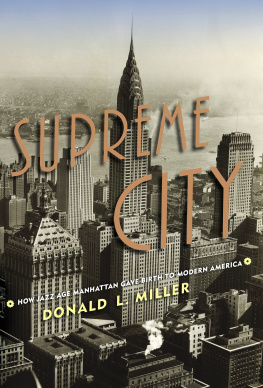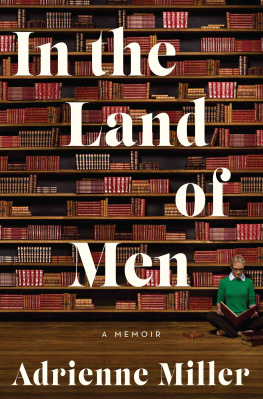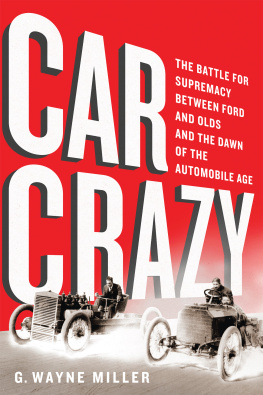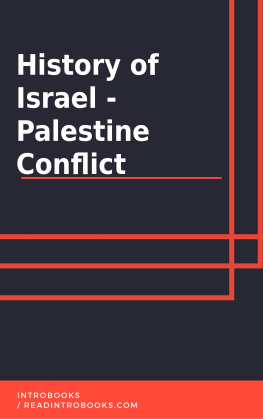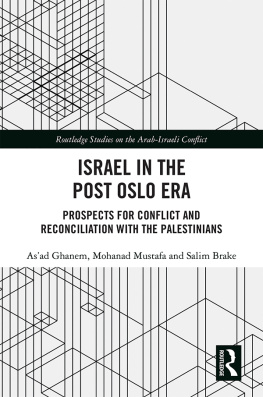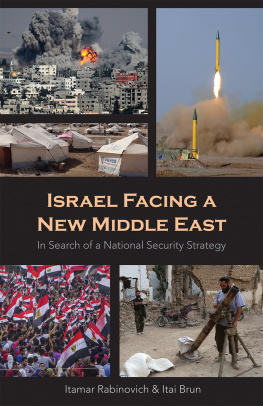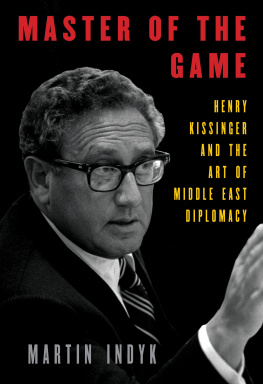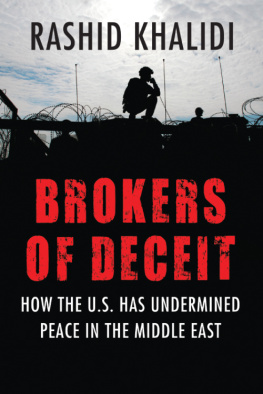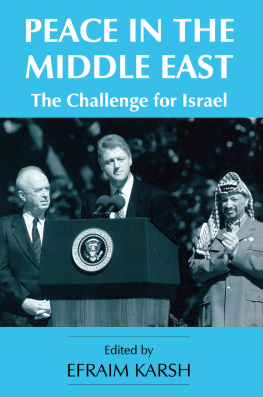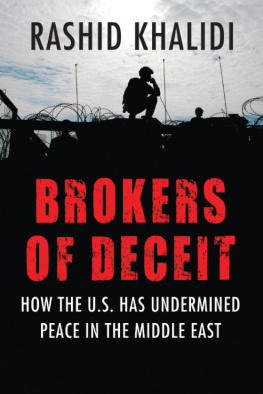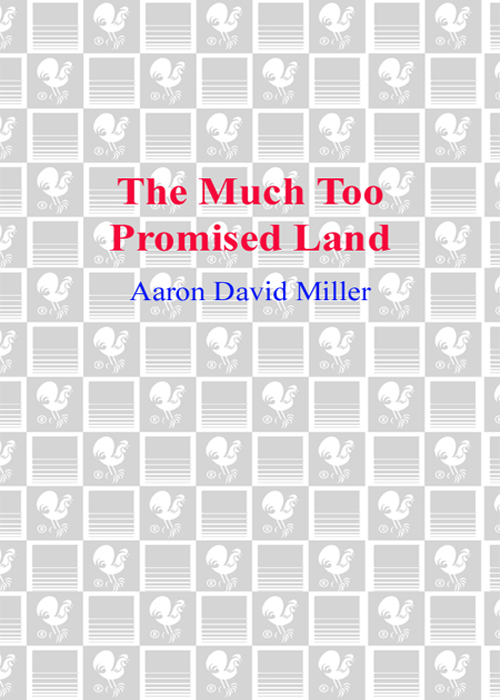
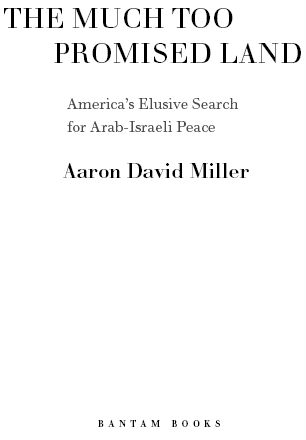
Contents
For my wife, Lindsay,
without whom there would be no love, joy,
and meaning in my life
The opinions and characterizations in this book are those of the author, and do not necessarily represent official positions of the United States Government.
Introduction:
Where did you get those shoes?
The chairman will see you now. But the meeting will have to be short. Hes not well. I had known Saeb Erekat, the PLOs lead negotiator, for twenty years and had never seen him so agitated.
As we walked down the corridor of Arafats Ramallah headquarters, I thought about the chairman. I had seen him several months earlier, in August 2004. Then he was fiery and combative, reveling in his role as victim. He had described himself as an embattled but undefeated Arab general (the only one) besieged by the mighty Israeli army. Arafats ominously black, compact machine pistol sitting on the conference table had set the tone for our meeting that day.
Now it was late October, and Arafat was reportedly very ill. Rumors hung as thick as the stale air in his headquarters. Did he have stomach cancer? Liver disease? Was he being poisoned by the Israelis? Did he have AIDS? I had no idea what to expect.
Saeb ushered me into the small windowless space that was serving as Arafats bedroom, instead of the regular sitting room where Arafat usually greeted his guests. The room was unbearably hot. The heat, combined with the sight of his unmade bed, medications strewn about, and a strange-looking contraption that in better days probably dispensed oxygen, made me queasy. I started to sweat.
As Arafat entered the room, propped up by Abu Alaa, the Palestinian prime minister, on one side and quickly by Saeb on the other, I was shocked by what I saw. Arafat had lost a great deal of weight. His face, gaunt and white rather than pale, only accentuated his already large bug eyes and full lips. He was dressed in a stained light blue sweat suit. A knit cap had replaced his trademark kaffiyeh. And with his large black glasses, he could have easily passed for a badly dressed senior in a retirement community in Florida.
Arafats footwear seemed to sum up the surreal character of the encounter. On his feet, the feet of the chairman of the PLO, symbol of national identity and pride to Palestinians, the embodiment of an arch-terrorist to many Israelis and Americans, were shower slippers from one of Israels best hotels, imprinted with the words Dan Tel Aviv.
I dont know what prompted me to say anything at all (maybe it was the heat), but I blurted out, Mr. Chairman, where did you get those shoes? Both Saeb and Abu Alaa looked down and, shaking their heads in disbelief, started to laugh. Arafat, on the other hand, looked confused and embarrassed, I suspect by his inability, in his weakened state, to understand the irony of donning footwear from a luxury Israeli hotel while the Israeli Defense Forces (IDF) kept him prisoner in his compound.
Saeb turned out to be right. The meeting lasted only twenty minutes. It was really more a monologue. Arafat focused on America, specifically on how the United States held the keyeven nowto his fate and to the future of both the Palestinian and the Israeli peoples. He kept insisting that only we could save the peace process and that America must rise to its historic responsibilities. There was no point in arguing. It had never worked when he was well, and it certainly wasnt going to have much of an impact now.
The monologue finished, Arafat embraced and kissed me, and I left. Within a week Arafat was flown to Paris for medical treatment. Within two weeks he was dead.
As I traveled back to Jerusalem from Ramallah that afternoon, I couldnt get Arafats focus on America out of my mind. I had heard variations on this rap many times before. I never bought them, and more than likely Arafat, the consummate actor, didnt buy them either. America was certainly not the main cause of his problems, let alone the source of his salvation. And Arafat, and anyone else who followed this issue seriously, knew it.
Still, this eleventh-hour appeal directed at the United States by a dying Arafat started me thinking again about the American role in Arab-Israeli negotiations and peacemaking. I had resigned from the Department of State almost two years earlier, having spent more than two decades under both Republican and Democratic administrations trying to help Arabs and Israelis negotiate an end to their conflict. I left government not because I had lost faith in the power of American diplomacy but because the timeline for serious negotiations, let alone a settlement, seemed to have been pushed well into the future. By late 2004 everything we had hoped to achieve in Oslo and Camp David lay broken or bloodied somewhere. Now I wondered whether Id been wrong all those years and what our legacy would be. In my blackest moments I thought about the words of the British governor of Aden who quipped that when Britannia fell beneath the waves, the British Empire would leave only two enduring monumentsthe game of Association Football and the expression fuck off.1 Was this to be Americas legacy in brokering Arab-Israeli peace? Was the conflict beyond resolution, the differences too great, and the hatreds too deep to be overcome even with American help?
For better than half a century American presidents, secretaries of state, and special envoys had wrestled with the same questions. And to what end? The promise of peace, harmony, and reconciliation in the promised land remains just that. The more I thought about it, the more it seemed that this land had been promised too many times to too many people. Those conflicting promises have haunted this troubled region for generations.
I figured historic Palestine was promised four times, at least, to its inhabitants: first by a Jewish, Christian, and Muslim God who offered an exclusive, even triumphal claim to the same land and its holy sites to those souls who were willing to follow; a second time by the British, who in an effort to protect an empire that stretched from Suez to India made conflicting commitments during the First World War to Zionists and to Arab nationalists; and third by the United Nations General Assembly, whose 1947 partition resolution proposed splitting Palestine into an Arab and a Jewish state.
But this book focuses on the fourth promise. That promise was made by America. I dont think we were cynical or duplicitous in making it, although perhaps we were nave. We didnt strike secret covenants or political deals with the Arabs or Israelis. But in its policies and pronouncements America offered a more alluring prospect: a promise that over time, through negotiation, dialogue, and compromise, the needs of Arabs and Israelis could be somehow reconciled and that Americans could help deliver what God, the British, and the United Nations couldnt. The embodiment of the American promise was the passage in November 1967, largely through American diplomacy, of UN Security Council Resolution 242. It might have been a UN resolution, but for all practical purposes it became the prime directive of American diplomacy. Its language was ambiguous, but its main message was clear: land for peace was possible, but only through negotiations, in which the United States and others pledged to assist.
Americas promise came with no guarantee; indeed, it was made with the clear understanding that Arabs and Israelis must bear the primary responsibility for negotiating their future. At the same time, America maintained that it would stand with the parties ready to help, and that American pragmatism, idealism, and power could assist them in ending their conflict and securing a comprehensive and lasting peace. With very few exceptions, every major statement or speech made by an American president or secretary of state on Arab-Israeli issues, from Richard Nixon through George W. Bush, contains a commitment to help the Arabs and Israelis negotiate their differences and reach peace.
Next page

